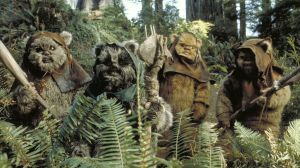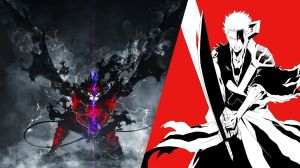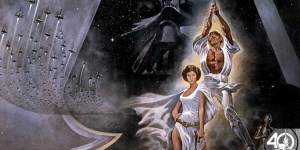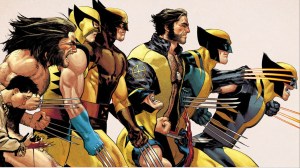In less than a month, Black Panther: Wakanda Forever arrives in theaters and with the eagerly anticipated Black Panther sequel comes the live action Marvel Cinematic Universe debut of one of comics’ oldest and most enduring characters, Namor the Sub-Mariner. Played by Tenoch Huerta in the upcoming film, the MCU’s Namor is a bit of a departure from the anti-hero Marvel Comics fans have come to both love and hate over nearly a century of storytelling. In Black Panther 2, Namor is the king not of Atlantis, but of Talocan, an ancient underwater kingdom with connections to both Aztec and Mayan cultures. The most recent trailer for Wakanda Forever highlighted even further the shift in Namor’s story, with M’Baku (Winston Duke) saying that the people call him “K’uk’ulkan’ or the “Feathered Serpent God” rather than king.
Videos by ComicBook.com
The change in Namor’s backstory and cultural origin is a major one that has the potential to see some massive shifts in how the MCU’s version of the iconic character is presented not just in Black Panther: Wakanda Forever, but within the future of the MCU as well. As one might guess, there are those who have some questions or reservations about this change. After all, Namor as the half-human, half-Atlantean son of Emperor Thakorr’s daughter Fen and American sea captain Leonard McKenzie has an 83-year rich history on the pages of Marvel Comics. But the beauty of stories of all kinds is that they have room to change and grow and the MCU giving Namor a new take is not only a good thing, but one that opens the door for a new world of storytelling with one of Marvel’s most iconic characters.
Keeps Namor Distinct from DC’s Aquaman
The half-human, half-Atlantean son of human man and a sea-dwelling woman who becomes the king of Atlantis — it’s a very basic and general description of a character, but it is one that applies equally to both Namor and Aquaman and while Namor debuted first in 1939 (Aquaman made his debut in DC’s More Fun Comics in 1941), Arthur Curry/Aquaman made his big screen debut well before Namor. It’s not hard to see how, for moviegoers, a direct adaptation of Namor’s comic book origin could appear to be a copy of Aquaman.
While full details of Namor’s MCU story remain a mystery, by giving Namor a completely new history, one with roots in Mesoamerican culture and myth, the MCU Namor stands very much on his own. Allowing for both ocean kings to have their own place in the larger world of live-action comic book inspired entertainment is always a good thing.
Gives Namor a Richer Background on Par with Black Panther
One of the things that makes Black Panther such an interesting character in both the MCU and in the comics is the cultural background. T’Challa/Black Panther is a character whose story is deeply tied to that of his people, both in terms of his role as the leader of the African nation of Wakanda, but also how his powers are tied to the history of his people with ancient Wakandan rituals and the drinking of the essence of the heart-shaped herb. Where many of the main heroes of the MCU obtain their powers through things like science or training and experience, becoming Black Panther is something that is tied to an entire people and part of the world with its own rich history that feels very much grounded in something that, while Wakanda is a fictional nation, could be real.
Expanding Namor’s background by centering his story not in Atlantis but in Talocan applies a similar cultural depth to the character that simply isn’t quite so prevalent in his comics counterpart. The Atlantis of comics is itself generally based on the fictional island that is part of an allegory on hubris in Plato’s Timaeus and Critias, while the real-world concept of Tlalocan — from which the MCU’s Talocan appears to take its inspiration — is a significant part of Aztec and Mesoamerican culture, a paradise ruled over by the rain deity Tlaloc and a concept that exists even in modern culture among the Nahua speaking people. By centering Namor’s origin in Talocan, it grounds the character in something that is still fictional but has elements of reality in a way Atlantis just doesn’t.
The New Origin is Far More Interesting
While Tlalocan and Tlaloc and other aspects of Aztec and Mayan mythology are by no means new, the reality is the MCU incorporating these things into Namor’s story in Black Panther: Wakanda Forever have opened up a completely new interest in this particular facet of human history. The average person on the street has an idea of what Atlantis is; until now, the ideas of paradise for those who died water-related deaths or the “feathered serpent god” K’uk’ulkan were pretty abstract. Now, we’re seeing people talking about these concepts on social media, writing think pieces about them, and even further exploring this rich and fascinating world.
And for comics fans? There’s the added bonus of the potential that Namor’s new origin could open up connections to new gods within the MCU beyond the Asgardians. After all, Namor’s Black Panther: Wakanda Forever appearance looks a great deal like that of Quetzalcoatl, who most notably appears on the pages of Thor Annual #10 from 1982 where the god is just one of several who team up with Thor to save all of myth and the divine realms from utter oblivion.
Representation Matters
While there are plenty of reasons that the change in Namor for Black Panther: Wakanda Forever is a good thing, perhaps the most important one is representation. The saying “if you can see it, you can be it” is one that frequently comes up in discussions of representation of diversity in entertainment and the idea of expanded representation within not just the MCU but Hollywood having positive impact is something that Huerta himself has even acknowledged.
“Latin Americans are always the bad guys in Hollywood movies,” Huerta previously told Empire magazine. “And now we are the heroes — or an anti-hero, in this instance.”
He also spoke about his own journey and how he knows that there are kids like him watching his achievements and realizing that they can do it, too.
“It’s an honor,” Huerta said at Marvel Studios’ Hall H presentation at San Diego Comic-Con. “I come from the hood, and thanks to inclusion, I am here. I wouldn’t be here without inclusion. A lot of kids are in their hood, looking at us, dreaming to be here, and they’re gonna make it.”
Black Panther: Wakanda Forever opens in theaters on November 11th.








